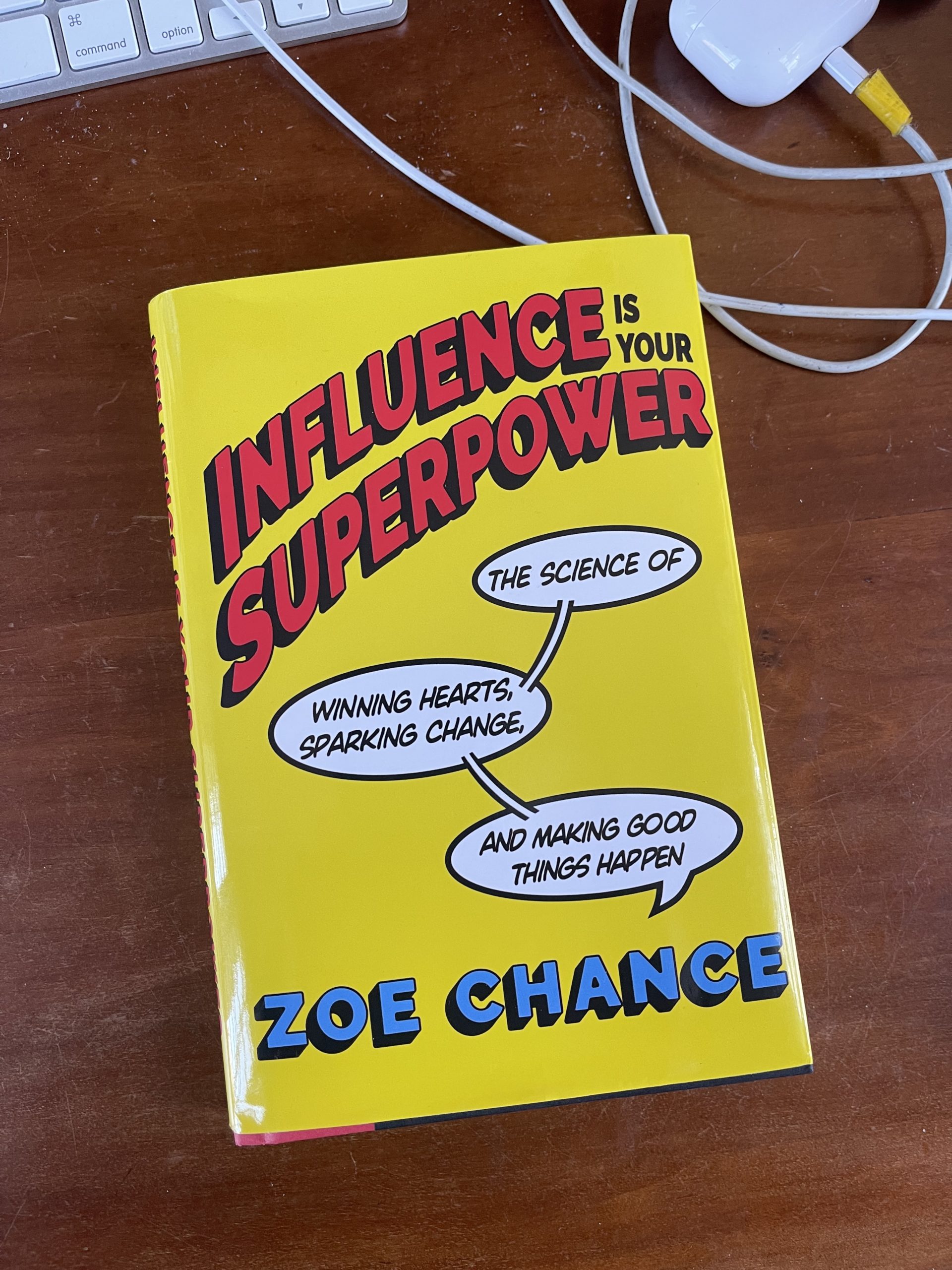 Back when Chiat/Day was the undisputed hottest agency in all the land, I used to work with a super smart guy who floored us in a leadership meeting one fine morning by declaring we weren’t in the ad biz anymore. Nope. That day we became purveyors of “persuasion.”
Back when Chiat/Day was the undisputed hottest agency in all the land, I used to work with a super smart guy who floored us in a leadership meeting one fine morning by declaring we weren’t in the ad biz anymore. Nope. That day we became purveyors of “persuasion.”
We all got excited and a little nervous by this heady concept as we each made our way onto the bandwagon. Since I was running the PR division at the time (a relative pimple on the butt end of the 800-lb. gorilla), this broader definition of advertising appealed to me in some ways. But it also left me feeling a little queasy, and I could never quite figure out why – until reading a new book by Zoe Chance called “Influence is Your Superpower.” I SO love this book.
Now I think of persuasion as a kind of dark art in which you can urge someone to a decision without actually earning their trust. However, you and I were born influential. Chance writes that we’ve been taught to suppress that power and to follow the rules. But when applied purposefully, influence is like a superpower that brings great ideas to life.
Here are 5 quick takeaways, from the author herself:
1. Making it okay for someone to say no makes them want to say yes.
Trying to influence someone means you’re a threat to their time, money, pride, or social capital. Most importantly, influence threatens their attention. No wonder when someone realizes you’re trying to influence them their gut reaction is to say no or tune you out. They meet your pressure with resistance. But when you extend an invitation without any pressure whatsoever, they become inclined to lean forward. It’s an aikido move for handling resistance.
2. Influence doesn’t work the way you think because you don’t think the way you think.
Two internal systems govern all our thinking and behavior. The first is fast, unconscious, emotional, and instinctive; these are your gut reactions. The second is slow, conscious, effortful, and seemingly rational; these are your deliberate decisions. Because the unconscious mind is fast, it is the first responder. Because the conscious mind can focus on only one thing at a time, it has to ignore most of what’s going on in the world. As a result, people tend to make choices that require the least effort.
3. The best predictor of behavior is ease.
The biggest misperception about changing minds is that you need to do it at all.
A lot of our behavior doesn’t reflect any conscious thinking; that’s why the best predictor of behavior is ease. It’s more powerful than motivation, price, quality, satisfaction, or intentions.
4. Being charismatic isn’t something you are—it’s something you do
The simplest charisma hack is to practice focusing your attention on people one at a time. To have charisma is to shine so that other people feel like they’re the only one in the room, and people want to say yes to you.
5. Authentic, lasting influence is a group project
The root of the word ‘influence’ is the Latin influere, to flow in—as a river, a current. Your influence flows from other people and to other people, and from them to others, and so on. Sometimes you’re aware of your own ripple effects, sometimes not.
Unlike the insight hatched in the shower by my old advertising buddy, the premise behind “Influence is Your Superpower” is rooted in ground-breaking research in behavioral economics, neuroscience, and psychology. Chance teaches the most popular course at Yale School of Management – and why wouldn’t it be? Who wouldn’t want to recapture the ability to effect meaningful, contagious change?
I, for one, need no persuasion.
Jon
